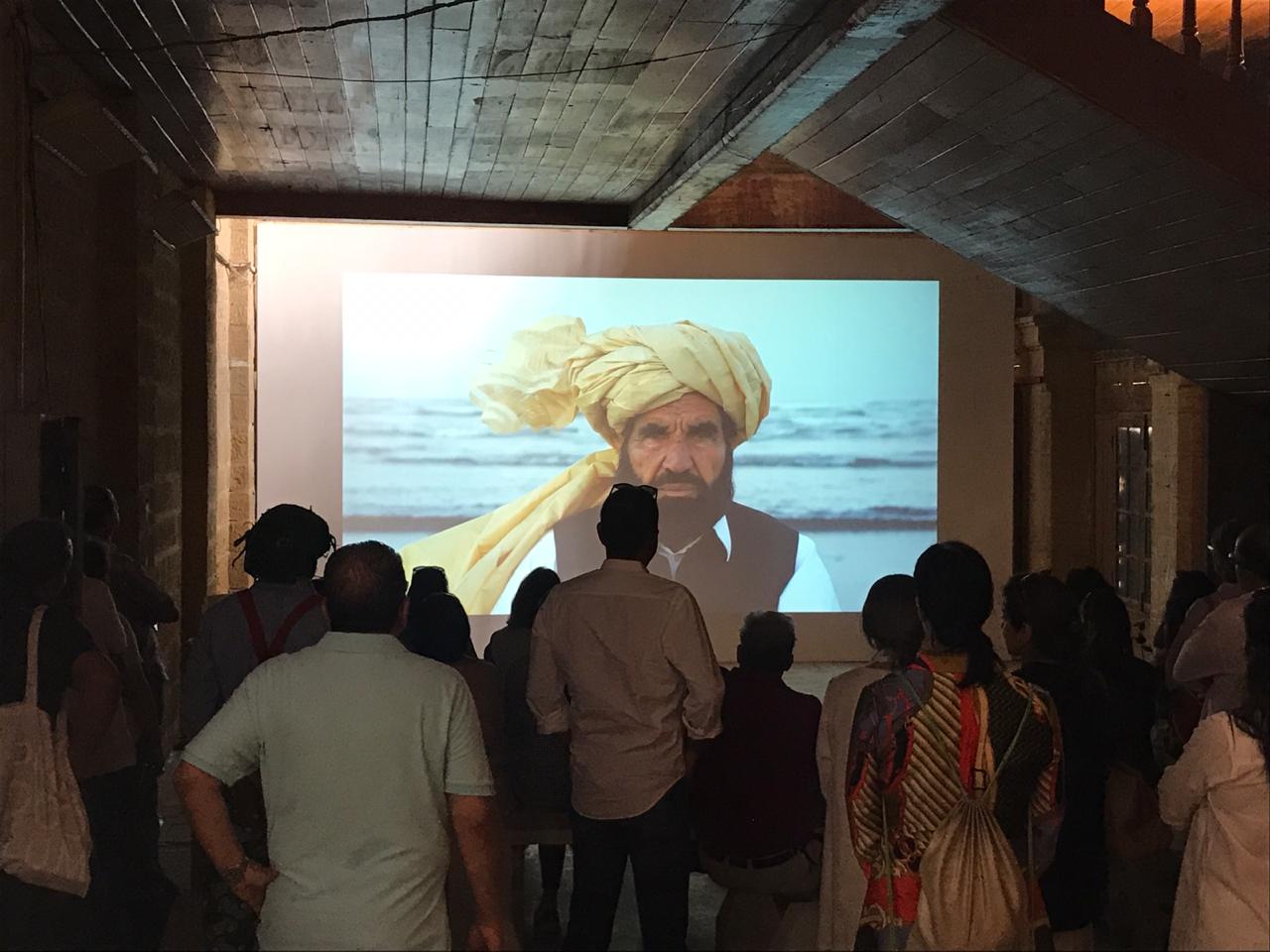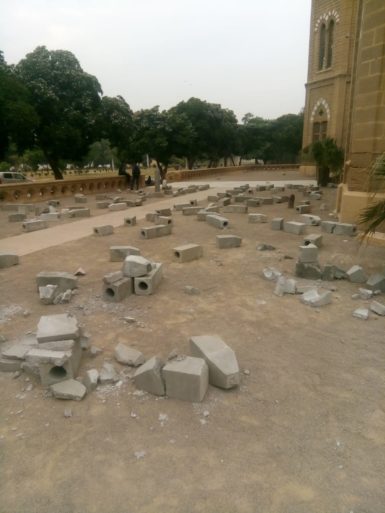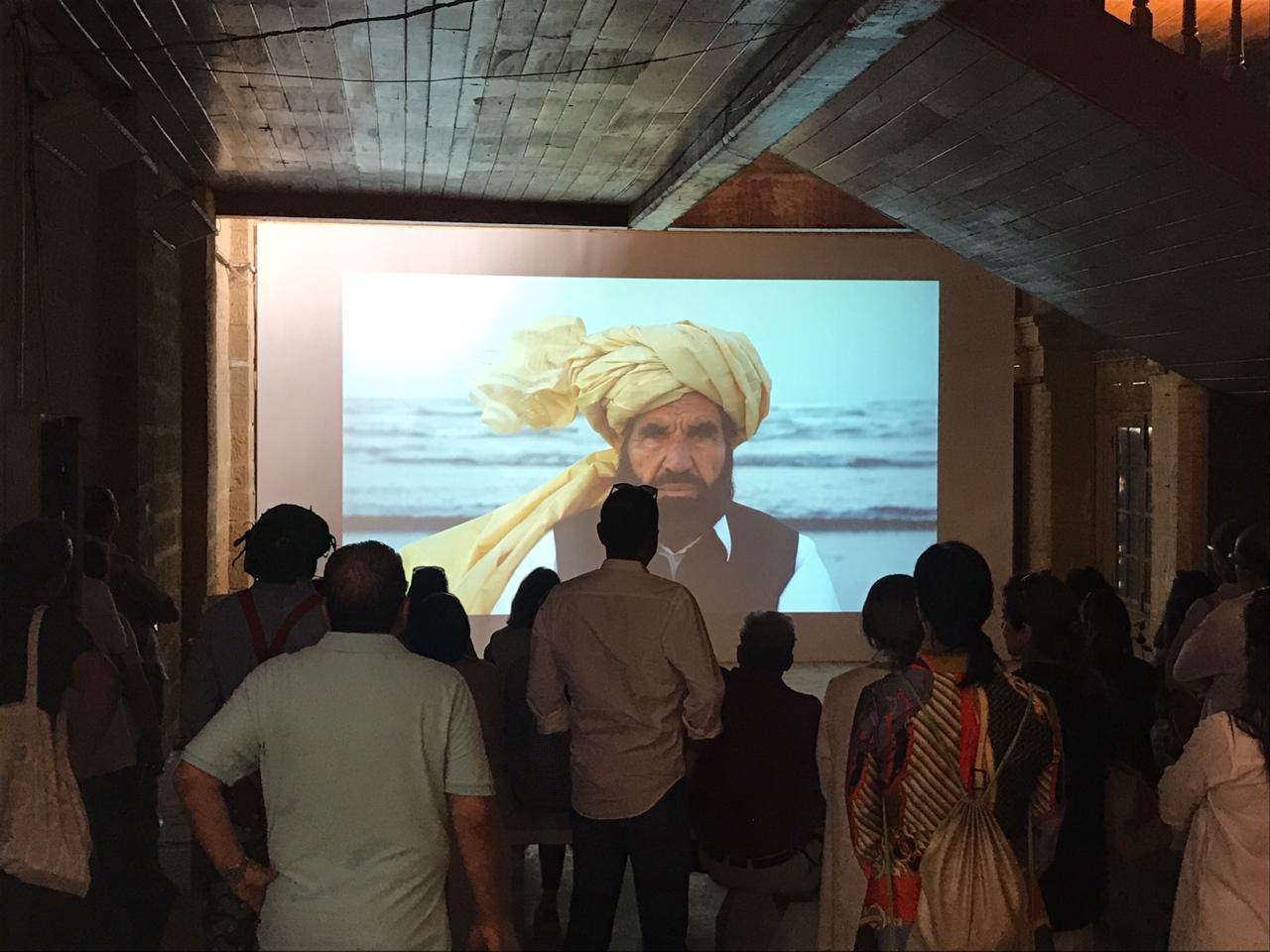[ad_1]

Installation view of Adeela Suleman’s “Killing Fields of Karachi” at the Karachi Biennial”
COURTESY OF THE ARTIST
A censorship controversy in Pakistan has roiled the South Asian art community, with many alleging that the removal of a work from the Karachi Biennale can be considered symptomatic of the nation’s oppressive political atmosphere.
On Sunday, the Karachi Biennale shut down its presentation of a work by artist Adeela Suleman, who was showing the installation Killing Fields of Karachi. The work featured 444 small concrete tombstones symbolizing people who were killed by authorities in Pakistan. A video of one victim’s father played above the monuments. The piece refers to a hot-button issue in Pakistan: killings committed in Karachi during a series of violent police raids between 2011 and 2018. (The trial of the officer who led the raids, Rao Anwar, is still ongoing.)
According to the Pakistani newspaper the Dawn, plainclothes officers entered the biennial on Sunday, just two hours after the event opened to the public, demanding the organizers permanently close Suleman’s exhibit. After the display was closed, officers reportedly attempted to reduce the artwork to ruins, smashing tombstones and pillars. Artists briefly tried to save the work, but were warned that authorities would be returning the next day—this time with a truck to cart away the artwork.

Smashed pieces of the artwork as authorities haul them away.
COURTESY OF THE ARTIST
Suleman, an art professor in Karachi’s Indus Valley School of Art and Architecture, told ARTnews, the biennale “has completely ditched me as an artist and abandoned my work.”
The biennial said in a statement, “We feel that despite the artist’s perspective, it is not compatible with the ethos of KB19 whose theme is ‘Ecology and the Environment,’ and feel that politicizing the platform will go against our efforts to bring art into the public and drawing artists from the fringe to the mainstream cultural discourse.”
In response to the removal, artists and human rights activists across the country have called on the biennial to address what they are calling censorship. On Monday, in a bid to save the exhibit, protesters staged a die-in among the tombstones that remained on view. Images of the protest spread widely on Twitter. By late Tuesday, Suleman’s entire Biennale work had been taken away from the exhibition.
Amnesty International South Asia, a prominent human rights group, tweeted that the organization was “horrified by this disturbing attack on freedom of expression.” A Google Document penned by activists soon followed. “The censorship of Suleman’s work has made it clear to us that our public spaces are anything but free,” the activists wrote in their circulated statement. As of Tuesday, more than 100 artists have signed the open letter.
Suleman said that she witnessed controversies of this sort in Pakistan often, but that she had remained hopeful that there could one day be greater freedom of expression in her country. Now, however, she was less sure. “We have seen censorship in the past, but in recent years things had been better,” she said. “This opened my eyes again. This shows the power art has in a country like Pakistan—they couldn’t take it for even two hours. Pakistan can talk about air pollution and water pollution—but corruption of mind and memory? That will be censored.”
[ad_2]
Source link

